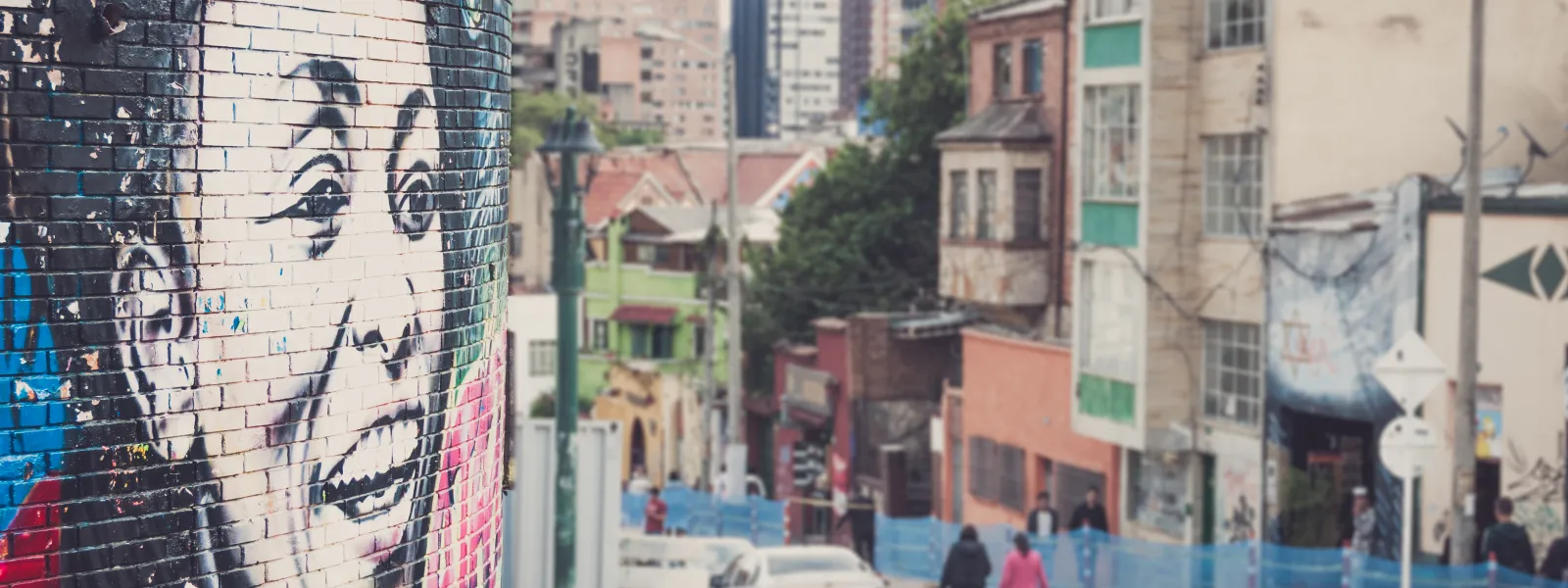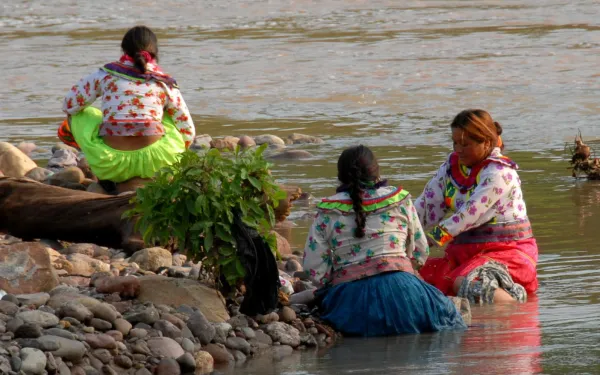
Project
Strengthening Protections Through the UN Human Rights System
We see it time and again. Industries spew toxic pollutants into the air. Fracking fouls water with poisonous chemicals. Large dams flood people out of their villages. Mines ruin farmland. People lose their health, their jobs, their access to water, even their homes. All of these events violate basic human rights protected by international law.
Enforcing human rights law provides another effective strategy for targeting problems caused by environmental degradation. The United Nations Human Rights System offers several mechanisms that AIDA uses to protect human rights—including the right to a healthy environment—in Latin America.
Related projects
Latest News
Doe Run Smelter in La Oroya, Peru, Loses Environmental Certification
FOR IMMEDIATE PUBLICATION: April 9, 2008 Press Contacts: Perry Gottesfeld, Executive Director OK International 415-362-9898 [email protected] Anna Cederstav, Ph.D. AIDA and Earthjustice 510-550-6700 [email protected] DOE RUN SMELTER IN LA OROYA, PERU, LOSES ENVIRONMENTAL CERTIFICATION Lima, Peru – Doe Run Peru, which operates one of the largest metal-smelters in the hemisphere, has lost its Environmental Certification in a highly unusual move taken by the company’s independent third-party auditors. TUV Rheinland initially granted the certification less than two years ago, but revoked it March 11, 2008 citing non-compliance with Peruvian environmental laws and the lack of adequate pollution prevention measures. The loss of the certification comes on the heels of a $234,000 US fine imposed last year against Doe Run Peru for several serious violations of environmental laws in Peru. This week, Peruvian authorities released a report detailing those violations, including noncompliance with the standards for lead and particulate matter. Doe Run Peru obtained the environmental certification under ISO 14001 in 2006 calling it a “significant milestone in delivering on our commitments to our communities, our employees and the environment." The Doe Run Company’s web site calls the ISO certification an “internationally recognized symbol of a company’s dedication to superior quality, customer satisfaction and continuous improvement.” Nevertheless, a number of studies conducted by the government as well as international health experts have shown that almost all of the children living in the area surrounding Doe Run Peru’s smelter have unacceptably high levels of lead in their bodies. Many are severely exposed and require immediate medical treatment. “TUV Rheinland acted responsibly in taking this unprecedented action to underscore the need for Doe Run Peru to do more to protect public health in La Oroya” said Perry Gottesfeld, Executive Director of Occupational Knowledge International (USA). “Revoking the certification should send a strong message to Doe Run that they have much more work to do,.” said Anna Cederstav, Staff Scientist with AIDA and Earthjustice, and author of the book La Oroya Cannot Wait. “Nevertheless, we are still concerned that, if paid enough, another certifying body will agree to provide Doe Run with a similar certification.” she added. In 2006, several organizations filed a petition with the Inter-American Commission on Human Rights of the Organization of American States, seeking a recommendation that the Peruvian government implement urgent measures to halt the grave violations against the health and lives of the citizens of La Oroya. Last year, the Commission agreed and requested that the state implement such precautionary measures. The World Health Organization (WHO) estimates that 120 million people are overexposed to lead (approximately three times the number infected by HIV/AIDS) and 99 percent of the most severely affected reside in the developing world. Lead affects both children and adults and causes brain damage, metal retardation, and other learning disabilities in children. In addition to lead, the population of La Oroya is also exposed to extreme levels of other harmful contaminants, including arsenic, cadmium, and sulfur dioxide.
Read more
Legal victory! - Peruvian Constitutional Tribunal Orders the Government to Address the Public Health Emergency in La Oroya
FOR IMMEDIATE RELEASE: May 12, 2006 Contact: Dr. Anna Cederstav, Earthjustice/AIDA, (English) (510) 457-4010 [email protected] Dr. Carlos Chirinos, SPDA, (Spanish) (+511) 441-9171 [email protected] Hunter Farrell, MOSAO/Technical Roundtable, English (+511) 97094921 Legal victory! Peru Supreme Court Demands Government Protect Public Health from Doe Run Smelter in La Oroya LIMA, PERU — Peru's Supreme Court has given the Ministry of Health 30 days to declare a health emergency in La Oroya, and to put in place an emergency health plan for the city, widely considered one of the most contaminated cities in the Western Hemisphere. The city is the home of a multi-metal smelter, owned and operated by the Doe Run Company of St. Louis, Missouri, one of the companies owned by Mr. Ira Rennert and the Renco group of New York. While the ruling named the Health Ministry as the agency primarily responsible for protecting the health of La Oroya's population, it also called on the Doe Run Company to reduce toxic contamination and protect public health in La Oroya. The ruling requires the Health Ministry to pay special attention to health risks faced by children and pregnant women. “This is great news for the citizens of La Oroya, who have received justice from the Courts, and who -- in spite of having been threatened and persecuted for their role in demanding health protection in La Oroya -- had faith that justice would prevail,” said Dr. Carlos Chirinos, the attorney with the Peruvian Society for Environmental Law responsible for bringing the case almost four years ago. An initial victory in the lower court had been immediately appealed by Peru's Health Ministry, forcing the plaintiffs to bring the suit to the Supreme Court. The Supreme Court ruling allows 30 days for the Health Ministry to declare a health emergency in La Oroya, an action demanded by the Movement for Health in La Oroya (MOSAO) since 2003. A spokeswoman for the group, Dr. Eliana Ames, expressed satisfaction with the ruling: "This is the first time the Peruvian Government has acted to defend the health of all La Oroya's children and population." Earlier efforts of Peru's Environmental Health Authority (DIGESA) were limited to a few hundred of La Oroya's estimated 10,000 children, more than 97% of whom suffer from excessive levels of lead, according to last year's study by the St. Louis University's Public Health School. A related request to protect health by issuing precautionary measures for La Oroya is still pending before the Inter-American Commission on Human Rights. This case was brought by AIDA (Interamerican Association for Environmental Defense), Earthjustice, CEDHA (Center for Human Rights and Environment), and Carlos Chirinos.
Read more